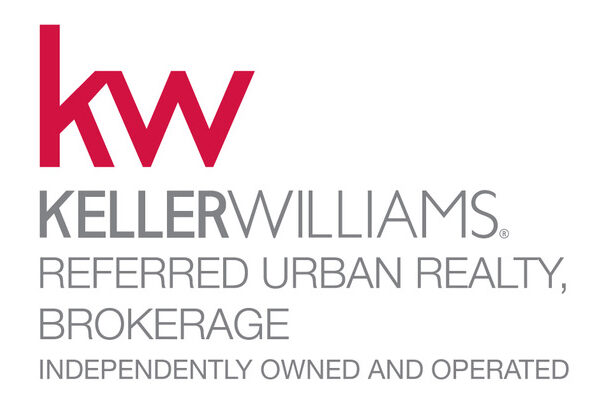You're one move away from your best life!
Menu


To determine ‘affordability’ you will first need to know your taxable income along with the amount of any debt outstanding and the monthly payments. Assuming it is your principal residence you are purchasing, calculate 32% of your income for use toward a mortgage payment, property taxes and heating costs. If applicable, half of the estimated monthly condominium maintenance fees will also be included in this calculation.
Second, calculate 40% of your taxable income and deduct all of your monthly debt payments, including car loans, credit cards, lines of credit payments. The lesser of the first or second calculation will be used to help determine how much of your income may be used towards housing related payments, including your mortgage payment. These calculations are based on lenders’ usual guidelines.
In addition to considering what the ratios say you can afford, make sure you calculate how much you think you can afford. If the payment amount you are comfortable with is less than 32% of your income you may want to settle for the lower amount rather than stretch yourself financially. Make sure you don’t leave yourself house poor. Structure your payments so that you can still afford simple luxuries.
A home inspection is a visual examination of the property to determine the overall condition of the home. In the process, the inspector should be checking all major components (roofs, ceilings, walls, floors, foundations, crawl spaces, attics, retaining walls, etc.) and systems (electrical, heating, plumbing, drainage, exterior weather proofing, etc.). The results
of the inspection should be provided to the purchaser in written form, in detail, generally within 24 hours of the inspection.
A pre-purchase home inspection can add peace of mind and make a difficult decision much easier. It may indicate that the home needs major structural repairs which can be factored into your buying decision. A home inspection helps remove a number of unknowns and increases the likelihood of a successful purchase.
It is a condition of a non-resident selling property in Canada that they first obtain a Clearance Certificate from Canada Customs & Revenue Agency. The current wait for a Clearance Certificate (October 2001) is approximately 10 to 12 weeks. Prior to Canada Customs & Revenue Agency issuing a Clearance Certificate they will wish to collect any tax payable with respect to the property – this will include any tax payable on the rental income from the property which has not already been remitted as well as tax on the capital gain experienced on the property and if applicable, recapture of capital cost allowance.
In calculating the capital gain on the property Canada Customs & Revenue Agency allows only the following to be added to the purchase price to determine the adjusted cost base:
Property Transfer Tax
Legal fees and disbursements in conjunction with the purchase Furnishings and renovations included in the selling price;(receipts for the included items will be required). It is critical that you retain receipts for the furnishings and that they identify the furnishings and as having been acquired for your real estate property as well as any Customs documentation showing furnishings acquired in other jurisdictions..
Goods and Services Tax (GST)
A portion of the interest on mortgage payments (only if the Vendor has properly elected to have the interest capitalized on their tax return).
Canada Customs & Revenue Agency does not allow any deductions from the selling price in determining the gain (i.e. you cannot subtract the real estate commission, legal fees or GST paid on the selling). The amount required to be remitted on the gain is 25 percent of the gain. By filing a Canadian tax return subsequent to the sale, you can claim expenses such as commission and legal fees and some of the tax paid may be recovered.
Sellers should contact their accountants or lawyers with respect to requesting a Clearance Certificate as soon as an accepted offer has been received with respect to the property. Should the completion date be prior to the issuance of the Clearance Certificate, a holdback of between 25% and 50% of the sale price will be required by the Purchaser’s solicitor until the Clearance Certificate is issued.
Please note that the Purchasers lawyer may take the position that if the property has been rented out it is a depreciable property and therefore the holdback is 50% on the portion of that purchase price that relates to the building.
For additional costs contact us and we’ll be glad to provide you more assistance.
A minimum down payment of 5% is required to purchase a home. In addition to the down payment, you must also be able to show that you can cover the applicable closing costs (i.e. legal fees and disbursements, appraisal fees and a survey certificate, where applicable).
Regardless of the amount of your down payment, at least 5% of it must be from your own cash resources or a gift from a family member. It cannot be borrowed.
Lenders will generally accept a gift from a family member as an acceptable down payment provided a letter stating it is a true gift, not a loan, is signed by the donor. Where the mortgage loan insurance is provided by Canada Mortgage and Housing Corporation (CMHC), the gift money must be in the your possession before the application is sent in to CMHC for approval.
Mortgages with less than 25% down must have mortgage loan insurance provided by either CMHC or GE.
A pre-approved mortgage provides an interest rate guarantee from a lender for a specified period of time (usually 60 to 90 days) and for a set amount of money. The pre-approval is calculated based on information provided by you and is generally subject to certain conditions being met before the mortgage is finalized. Conditions would usually be things like ‘written employment and income confirmation’ and ‘down payment from your own
resources’, for example.
Most successful real estate professionals will want to ensure you have a pre-approved mortgage in place before they take you out looking for a home. This is to ensure that they are showing you property within your affordable price range.
In summary, a pre-approved mortgage is one of the first steps a home buyer should take before beginning the buying process.
Most lenders now offer insured mortgages for both new and resale homes with lower down payment requirements than conventional mortgages – as low as 5%. Low down payment mortgages must be insured to cover potential default of payment, and their carrying costs are therefore higher than a conventional mortgage because they include the insurance premium.
With all low down payment insured mortgages, you are responsible for:
There are ways to reduce the number of years to pay down your mortgage. You’ll enjoy significant savings by:
Today, about 50% of first-time home buyers use their RRSP savings to help finance a down payment. With the federal government’s Home Buyers’ Plan, you can use up to $20,000 in RRSP savings ($40,000 for a couple) to help pay for your down payment on your first home. You then have 15 years to repay your RRSP.
To qualify, the RRSP funds you’re using must be on deposit for at least 90 days. You’ll also need a signed agreement to buy a qualifying home.
Even if you have already saved for your down payment, it may make good financial sense to access your savings through the Home Buyers’ Plan. For example, if you had already saved $20,000 for a down payment – and assuming you still had enough “contribution room” in your RRSP for a contribution of that amount you could move your savings into a registered investment at least 90 days before your closing date. Then, simply withdraw the money through the Home Buyers’ Plan.
The advantage? Your $20,000 RRSP contribution will count as a tax deduction this year. Use any tax refund you receive to repay the RRSP or other expenses related to buying your home.
While using your RRSP for a down payment may help you buy a home sooner, it can also mean missing out on some tax-sheltered growth. So be sure to ask your financial planner whether this strategy makes sense for you, given your personal financial situation.
The length of mortgage terms varies widely – from six months right up to 40 years. As a rule of thumb, the shorter the term, the lower the interest rate the longer the term, the higher the rate.
While four or five year mortgages are what most home buyers typically choose, you may consider a short-term mortgage if you have a higher tolerance for risk, if you have time to watch rates or are not prepared to make a long-term commitment right now.
Before selecting your mortgage term, we suggest you answer the following questions:
1. Do you plan to sell your house in the short-term without buying another? If so, a short mortgage term may be the best option.
2. Do you believe that interest rates have bottomed out and are not likely to drop more? If that’s the case, a long mortgage term may be the right choice for you. Similarly, if you think rates are currently high, you may want to opt for a short to medium length mortgage term hoping that rates drop by the time your term expires.
3. Are you looking for security as a first-time home buyer? Then you may prefer a longer mortgage term, so that you can budget for and manage your monthly expenses.
4. Are you willing to follow interest rates closely and risk their being increased mortgage payments following a renewal? If that’s the case, a short mortgage term may best suit your needs.
Needless to say, you’ll have financial responsibilities as a home owner.
Some of them, like taxes, may not be billed monthly, so do the calculations to break them down into monthly costs. Below you will find a list of these expenses.
The Mortgage Payment
For most home buyers, this is the largest monthly expense. The actual amount of the mortgage payment can vary widely since it is based on a number of variables, such as mortgage term or amortization.
Property Taxes
Property tax can be paid in two ways – remitted directly to the municipality by you, in which case you may be required to periodically show proof of payment to your financial institution; or paid as part of your monthly mortgage payment.
School Taxes
In some municipalities, these taxes are integrated into the property taxes. In others, they are collected separately and are payable in a single lump sum, usually due at the end of the current school year.
Utilities
As a home owner, you’ll be responsible for all utility bills including heating, gas, electricity, water, telephone and cable.
Maintenance and Upkeep
You will also have to cover the cost of painting, roof repairs, electrical and plumbing, walks and driveway, lawn care and snow removal. A well-maintained property helps to preserve your home’s market value, enhances the neighbourhood and, depending on the kind of renovations you make could add to the worth of your property.

©2024 Copyright Allyson Scott